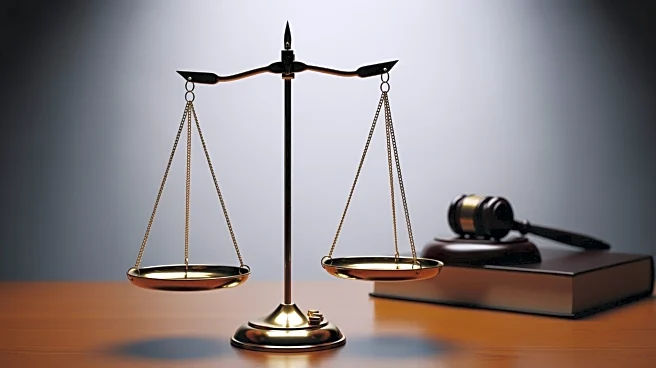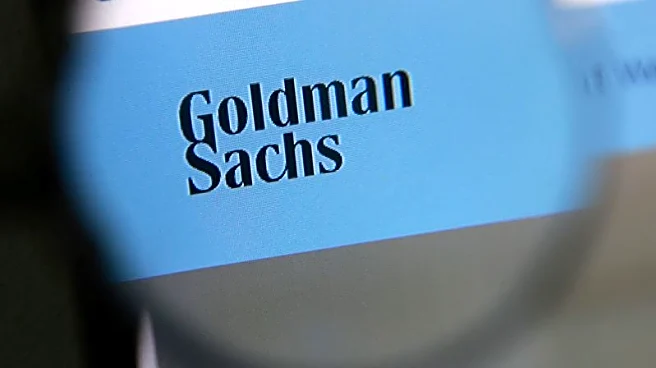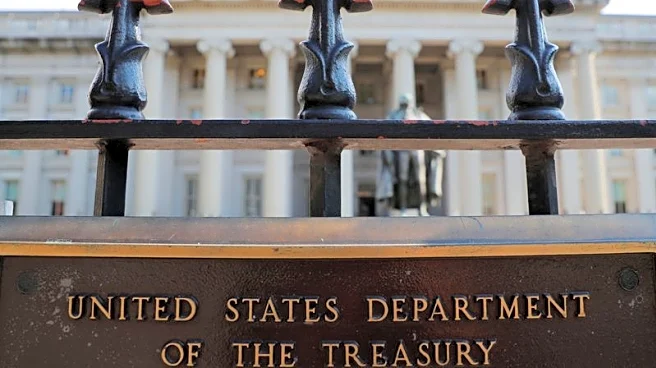What's Happening?
The U.S. Supreme Court is currently deliberating on the legality of President Trump's global tariffs program, a case with significant implications for American consumers, businesses, and the broader economy. The case questions whether the 1977 International
Emergency Economic Powers Act (IEEPA) grants the president the authority to impose tariffs without congressional approval. President Trump has utilized this act to set tariffs on various countries, citing national emergencies. The tariffs have been a cornerstone of his administration's trade policy, affecting a wide range of imports and raising substantial revenue for the federal government. The justices, including several conservatives, have expressed skepticism about the extent of the president's power under IEEPA, highlighting concerns about the separation of powers and the potential overreach of executive authority.
Why It's Important?
The outcome of this case could have profound effects on U.S. trade policy and the balance of power between the executive and legislative branches. If the Supreme Court invalidates the tariffs, the U.S. government may be required to refund billions of dollars to businesses, impacting federal revenue and potentially altering trade negotiations. Conversely, upholding the tariffs could solidify a significant expansion of presidential power, allowing future administrations to impose similar measures without congressional oversight. This decision will also affect various industries, particularly those reliant on imports, as tariffs have increased costs for businesses and consumers alike. The case underscores the ongoing debate over the appropriate scope of executive authority in economic and foreign policy matters.
What's Next?
A decision from the Supreme Court is expected by June 2026. Depending on the ruling, there could be significant shifts in U.S. trade policy and executive power. If the court sides with the challengers, Congress may need to reassess the legal framework governing tariffs and trade. Businesses affected by the tariffs are closely monitoring the case, as a favorable ruling could alleviate financial burdens and influence future trade strategies. The decision will also likely prompt discussions among policymakers about the balance of power and the role of the executive branch in economic regulation.
Beyond the Headlines
The case raises broader questions about the constitutional limits of presidential power and the potential for executive overreach. It highlights the tension between national security concerns and economic regulation, as well as the challenges of adapting legal frameworks to contemporary global trade dynamics. The decision could set a precedent for how emergencies are defined and used to justify executive actions, influencing future administrations' approaches to both domestic and international issues.
















